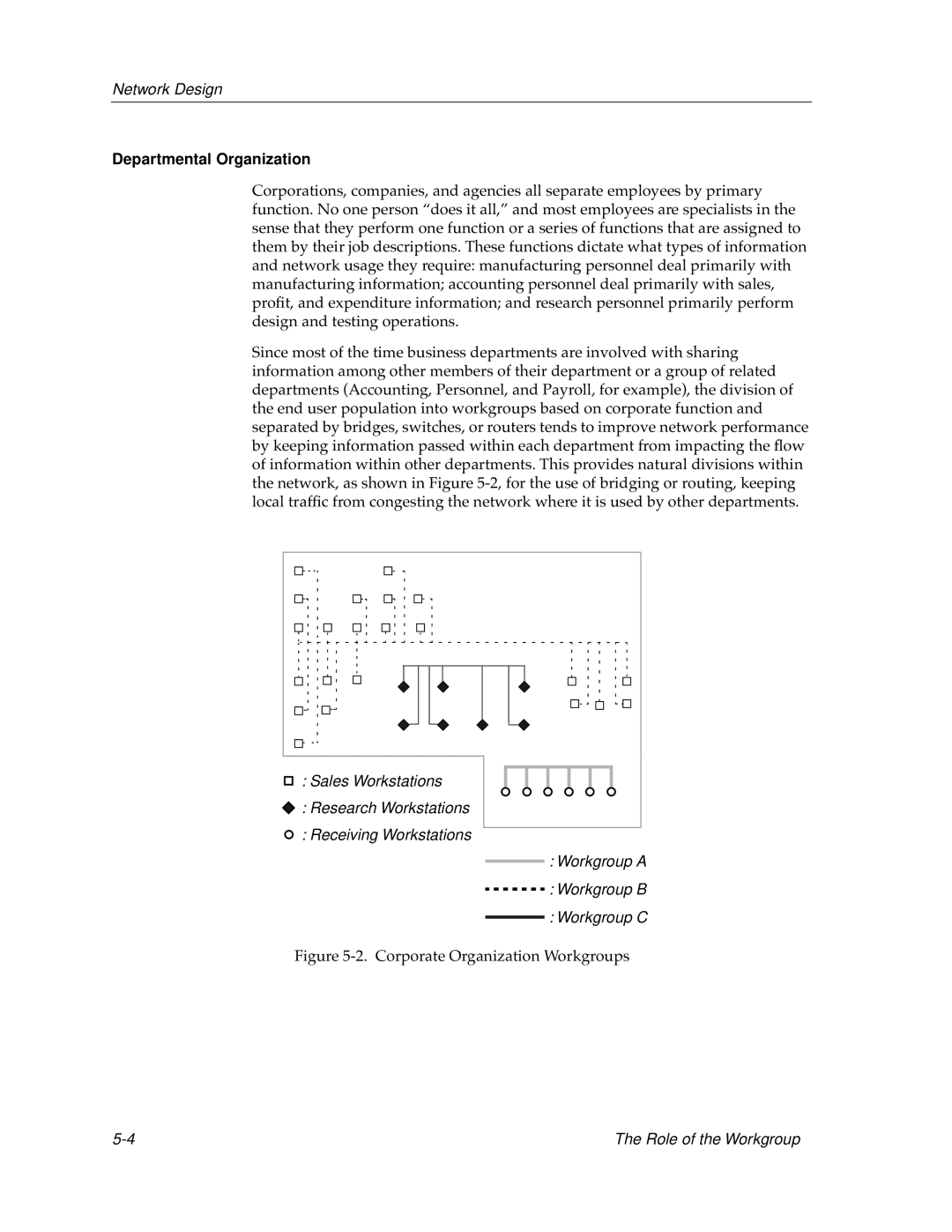
Network Design
Departmental Organization
Corporations, companies, and agencies all separate employees by primary function. No one person “does it all,” and most employees are specialists in the sense that they perform one function or a series of functions that are assigned to them by their job descriptions. These functions dictate what types of information and network usage they require: manufacturing personnel deal primarily with manufacturing information; accounting personnel deal primarily with sales, profit, and expenditure information; and research personnel primarily perform design and testing operations.
Since most of the time business departments are involved with sharing information among other members of their department or a group of related departments (Accounting, Personnel, and Payroll, for example), the division of the end user population into workgroups based on corporate function and separated by bridges, switches, or routers tends to improve network performance by keeping information passed within each department from impacting the flow of information within other departments. This provides natural divisions within the network, as shown in Figure
: Sales Workstations
![]() : Research Workstations
: Research Workstations
![]() : Receiving Workstations
: Receiving Workstations
: Workgroup A
![]()
![]() : Workgroup B
: Workgroup B
: Workgroup C
Figure 5-2. Corporate Organization Workgroups
The Role of the Workgroup |
